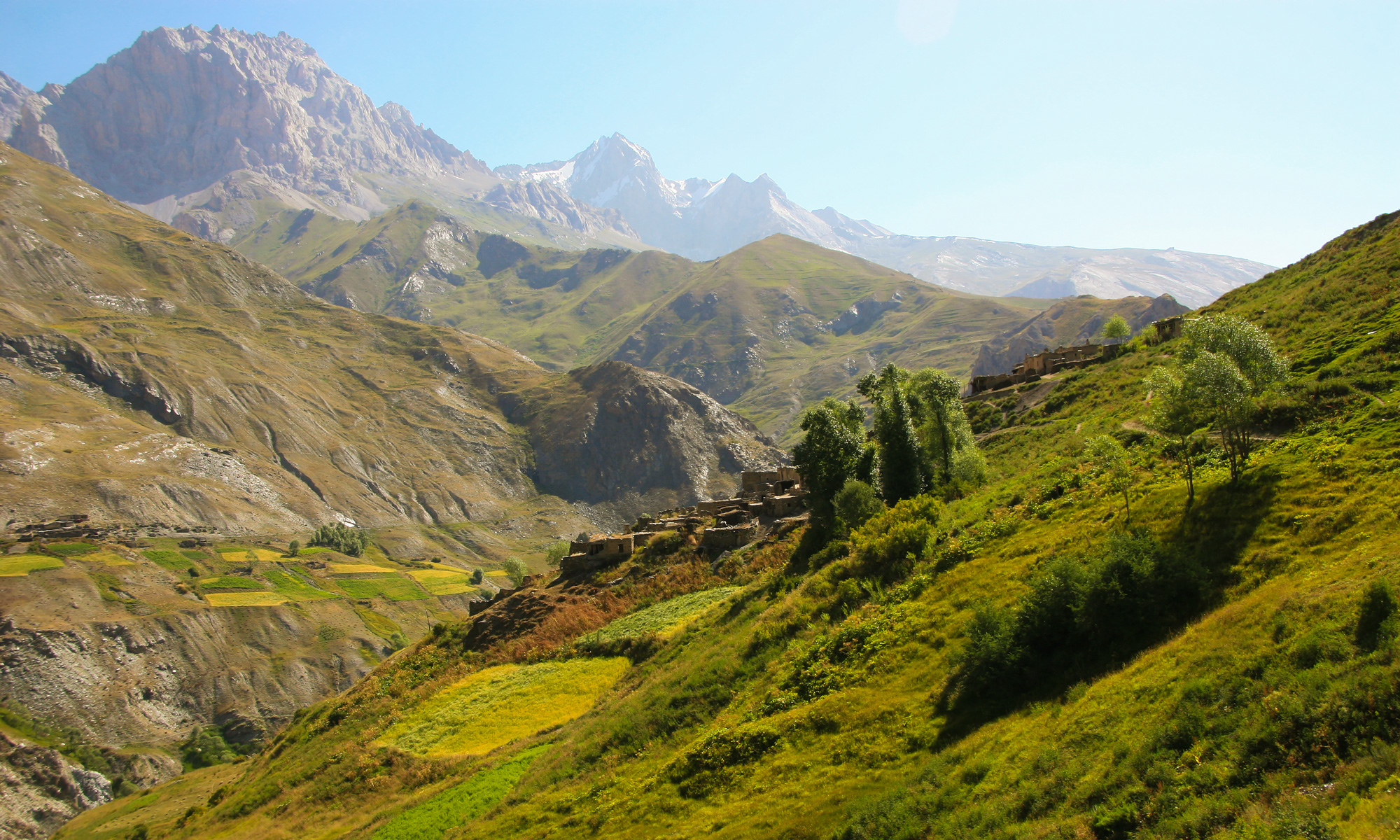In the Yaghnob Valley, the land does not provide without memory. Water is not drawn without thanks. A pot is not heated without remembering who gathered the wood. Here, sustainability is not a trend—it is a lived ethic, carved into stone paths and spoken in a language that honors restraint.
The Yaghnobi way of living with the land is shaped not only by necessity, but by a worldview: to waste is to forget, and forgetting is a form of harm. Even the language itself reflects this ethic—full of verbs and phrases that mirror the careful, deliberate rhythms of drawing, conserving, and giving back.
In Yaghnob, clean water is not taken for granted. Most homes have no plumbing, no pumps—just the river or a shared irrigation channel, carved long ago by hand. Water is fetched in buckets, carried in skins, stored in clay jars. Every drop is deliberate.
Public health reports confirm the fragility of this system: springtime floods bringing waterborne illness, freezing winters cutting off access, and villages managing without basic sanitation. And yet, what water exists is handled with reverence.
The language reveals this respect:
-
об (ob) – water, a word repeated in prayers, poems, and toasts
-
оби ҷонбахш (obi jōnbakhsh) – “soul-giving water,” said when thanking someone for a drink
-
обро пок гир (ob-ro pok gir) – “take the water clean,” a phrase implying not only hygiene but moral responsibility
In oral tradition, the river is not just a resource—it is a relationship. It flows from glaciers shaped by ancestors. To waste it, to pollute it, is to dishonor them.
Until recently, light in the valley came from three sources: the sun, the hearth, and the flame. Yaghnobi homes were built to maximize natural light. Cooking was done over wood gathered not by proximity, but by knowledge—which trees could spare a branch, which groves were recovering.
Ashes were saved and reused. Fuel was never wasted. Flame was not just fire—it was care, continuity, and labor.
Ethnographic and linguistic notes preserve these practices:
-
равғанчароғ (ravghancharōgh) – oil lamp, often lit only for essential tasks
-
пухтандон (pukhtandōn) – hearth, still a metaphor for the home and its warmth
-
чӯбкашӣ (chūbkashī) – the task of gathering firewood, spoken of with weight and seriousness
There is no word in Yaghnobi for “wasting fuel.” Not because it was forbidden—but because it was unthinkable.
Sustainability in Yaghnob is not only practical—it is linguistic. The verbs themselves carry the ethics of care and are daily instructions. They guide cooking, cleaning, farming. In proverbs and folk tales, those who waste are mocked or punished. Those who share wisely—heroes.
One story tells of a man who pollutes a sacred stream and goes blind. Not from divine wrath, but because, as the tale says, “He forgot that the water remembers.”
In a valley where aid arrives late and infrastructure remains minimal, sustainability becomes an act of memory.
You bake bread the way your grandmother taught you—because it uses what the mountain gives. You carry water how your uncle showed you—because he learned it from his mother, and she from hers.
“Об мисли дӯсти қадимист — агар вай равад, дигар наояд.”
“Water is like an old friend—if it leaves, it does not return.”
This is not metaphor. It is instruction.
Today, as roads reach deeper into the valley and electricity flickers into homes, some of these habits are fraying. Plastic lingers where rags once composted. Coal replaces carefully gathered firewood. Water now leaks from jugs patched without the old techniques.
But the language still remembers.
Yaghnobi speakers still distinguish between types of snow, between winds that bend trees and those that whisper. They still name soils, herbs, and smoke-filtered light with precision. These words are not archaic—they are keys to a more respectful, reciprocal way of living.
True sustainability in Yaghnob is not found only in technologies or plans. It lives in the gestures of daily life: in the careful scoop of water, in the gathered branch, in the whispered advice of a grandmother:
“Don’t draw too early—the river is still waking.”
She’s not just offering caution. She’s transmitting a relationship—between person and place, between need and restraint.
In a world where sustainability is often framed in policy and data, Yaghnobi practices remind us that it can also be tactile, ancestral, and deeply linguistic.
To draw water, tend fire, and conserve light is to speak the mountain’s language—not just fluently, but humbly.
